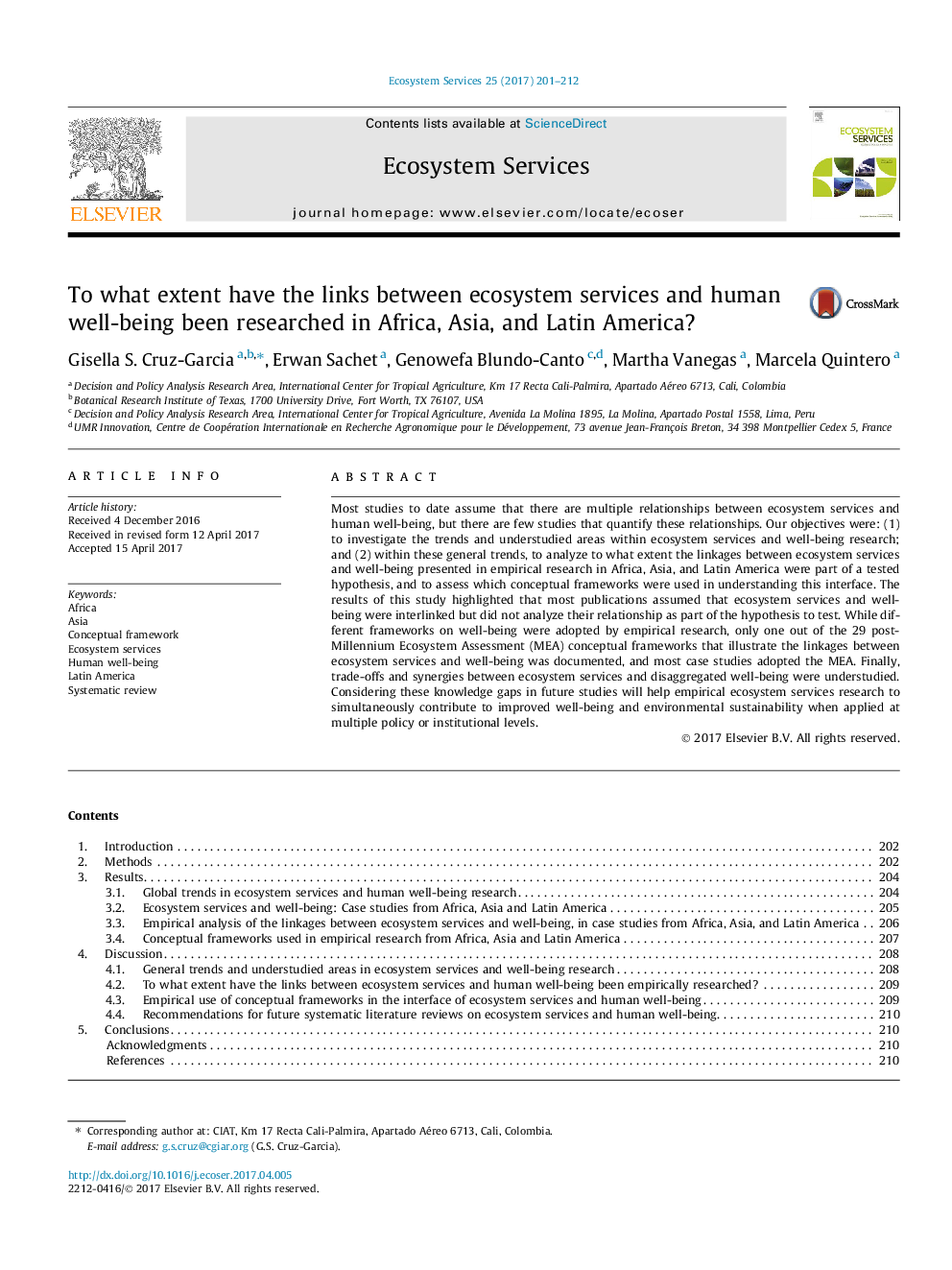| Article ID | Journal | Published Year | Pages | File Type |
|---|---|---|---|---|
| 4761618 | Ecosystem Services | 2017 | 12 Pages |
Abstract
Most studies to date assume that there are multiple relationships between ecosystem services and human well-being, but there are few studies that quantify these relationships. Our objectives were: (1) to investigate the trends and understudied areas within ecosystem services and well-being research; and (2) within these general trends, to analyze to what extent the linkages between ecosystem services and well-being presented in empirical research in Africa, Asia, and Latin America were part of a tested hypothesis, and to assess which conceptual frameworks were used in understanding this interface. The results of this study highlighted that most publications assumed that ecosystem services and well-being were interlinked but did not analyze their relationship as part of the hypothesis to test. While different frameworks on well-being were adopted by empirical research, only one out of the 29 post-Millennium Ecosystem Assessment (MEA) conceptual frameworks that illustrate the linkages between ecosystem services and well-being was documented, and most case studies adopted the MEA. Finally, trade-offs and synergies between ecosystem services and disaggregated well-being were understudied. Considering these knowledge gaps in future studies will help empirical ecosystem services research to simultaneously contribute to improved well-being and environmental sustainability when applied at multiple policy or institutional levels.
Keywords
Related Topics
Life Sciences
Agricultural and Biological Sciences
Agricultural and Biological Sciences (General)
Authors
Gisella S. Cruz-Garcia, Erwan Sachet, Genowefa Blundo-Canto, Martha Vanegas, Marcela Quintero,
